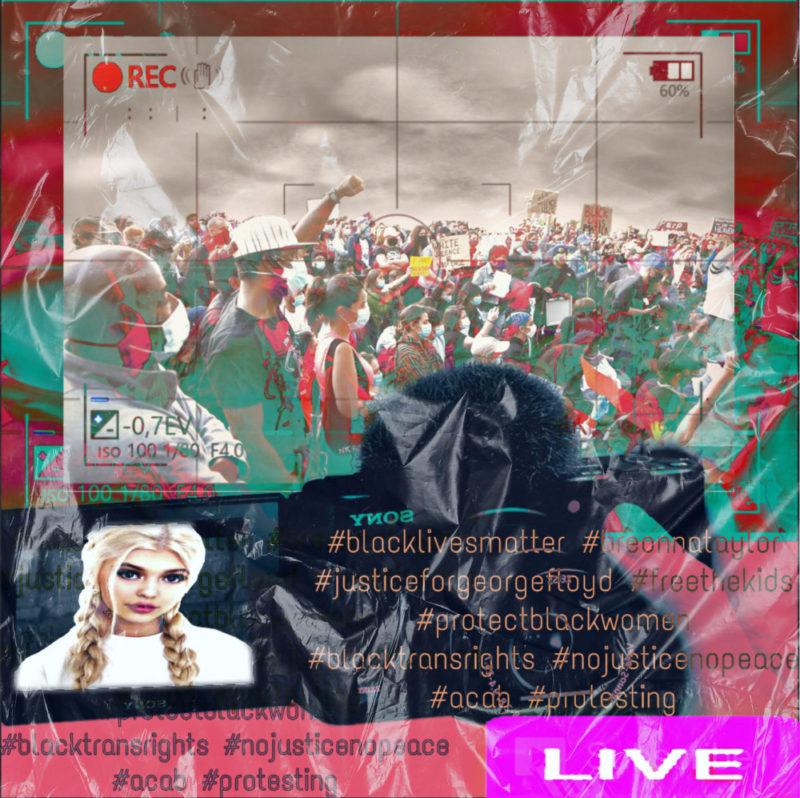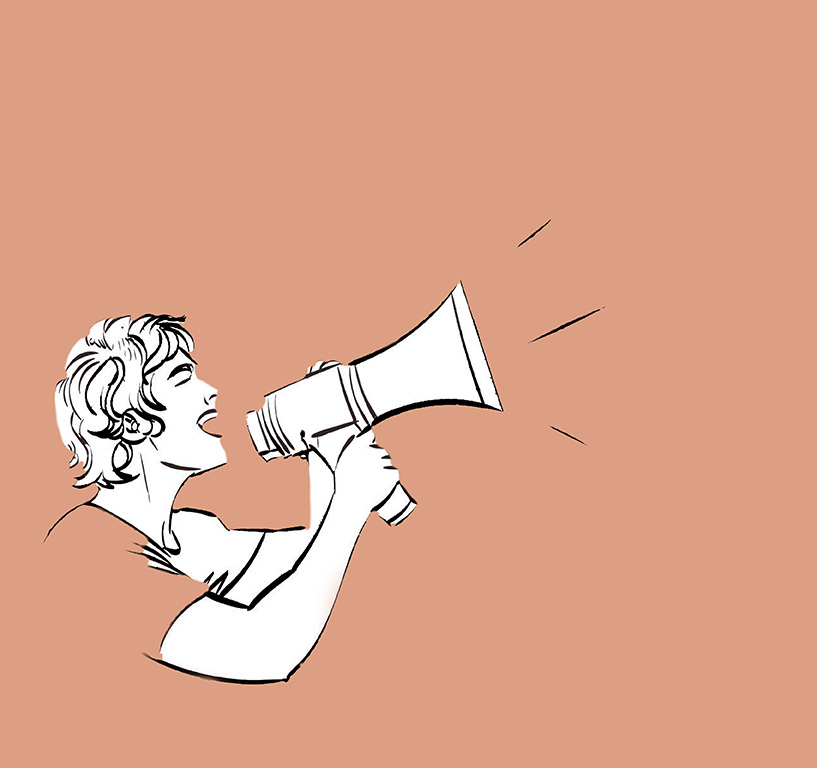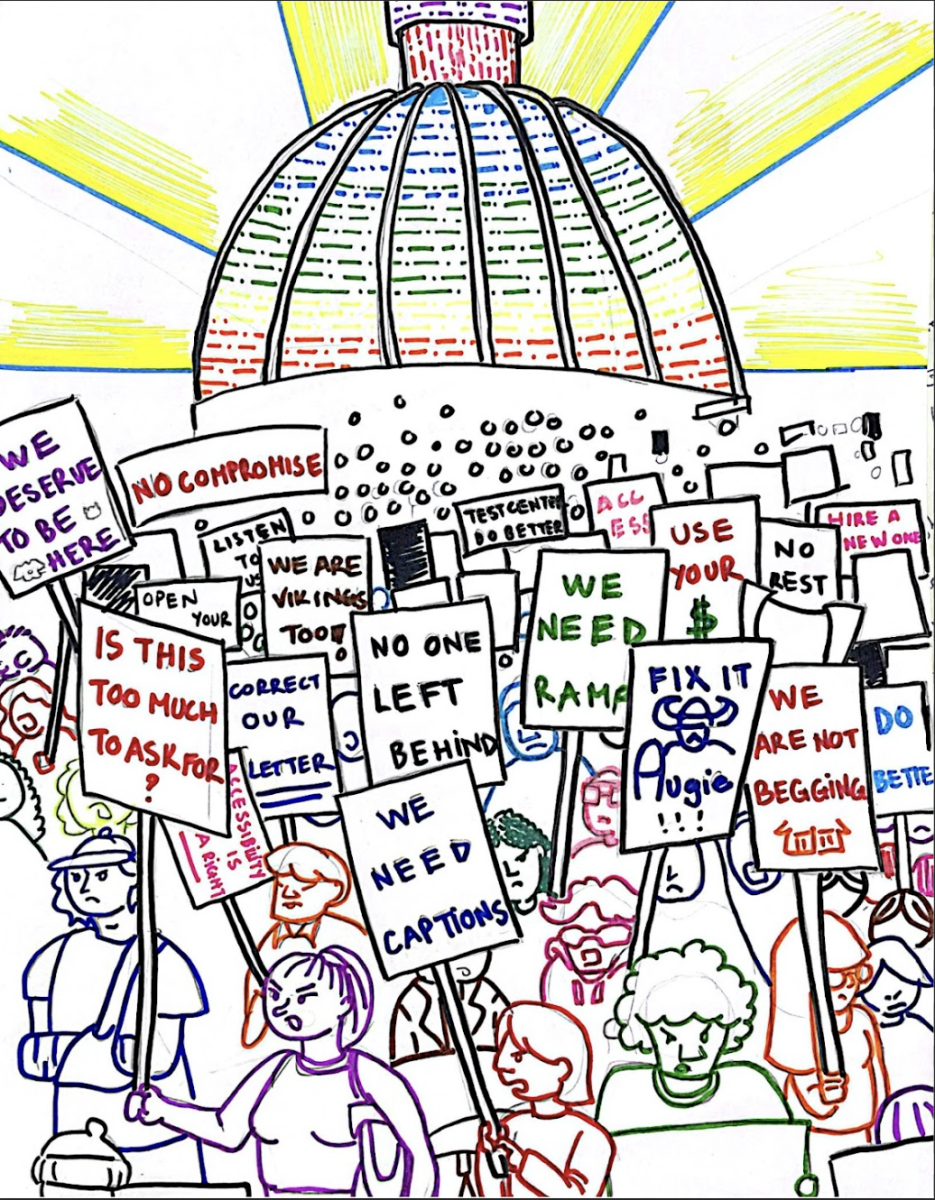This story is from the Observer’s Injustice and inequalities inside Augie magazine publication. Print March 2021.
Augustana students embrace a culture of social justice activism on campus. From protests about rape culture to holding a vigil for the lives lost at the hands of injustice, activism can be found anywhere on campus. However, what constitutes the difference between true activism and performative activism?
Merriam-Webster defines activism as “a doctrine or practice that emphasizes direct vigorous action especially in support of or opposition to one side of a controversial issue.”
Students from Augustana think activism is more intricate, however.
Duy Nguyen, a senior and international student from Vietnam said, “there’s a dialectic between those who are oppressed and to those who are the oppressor. So activism would be siding with those who are oppressed by a systemic hierarchy.”
Education is another key component of true activism.
“First and foremost really education really just takes the cake regarding just making sure you’re a real activist,” Jacob Washington, senior and president of BSU said, “You really need to know what you’re fighting. You really need to sit down and bunker down and think ‘what exactly is the issue here and what are the complexities of it?’”
There’s a multitude of ways to further activist ideals on campus. Every student has their own unique activist roles.
“I try to do whatever I can,” Nygun said, “I participate in events sponsored by OSID (office of student inclusion and diversity), the Black Student Union [and] the African Student Association.”
Nguyen also publishes written work to further social justice. “I did a post on gentrification, one on the wage gap, explaining like really basic ideas, but in a way that the common reader would find it easier to understand,” he said.
Groups on campus such as the ladies of vital essence (L.O.V.E) get involved in more grassroots community activism. L.O.V.E. strives to “strengthen our relationship with the Augustana and Rock Island community through doing service projects or social events,” said senior Tajania Jenkins, president of L.O.V.E.
Hands on activism isn’t the only route to take.
“I would say there’s definitely been a lot of activism [on campus] whether it’s through events, or just making flyers, posters, stickers or whatever. It definitely just seems like Augie students are becoming more outspoken,” Jenkins said.
Students can also become activists by “signing petitions, donating, education and contacting your elected officials,” Washington said.
Whether it be hands-on activism or educational activism, activism is accessible to everyone on campus.
There’s a fine line though between true activism and performative activism. Unlike the term activism, performative activism doesn’t have a clear cut definition.
Nyguyen equates performative activism with passiveness. He said, “Being passive is aligning yourself with the system as it is.”
Others believe that intent matters when it comes to activism. Sometimes though, it’s hard to decipher between performative vs true activists.
“From the outside looking in it looks like [performative activists] are actually doing activism. They’re bringing awareness to these topics of injustices against minorities and all these underappreciated groups. But from the inside, they’re really just doing it for social capital and just for their own personal gain,” said Washington.
Voting can also be performative or non-performative depending on the person’s motives.
For some students voting is a valid form of activism due to the history of certain groups not being allowed to vote.
“If a person like me, for example, is voting, I would probably vote through an activism point of view because there was a period in time when Black people or Black women or even just women in general couldn’t even vote in the elections,” Jenkins said.
On the other hand, voting can be performative if it’s your only form of participating in a movement. “You can assume that your vote matters to a certain extent but to say that you contributed in the progressive movement isn’t necessarily true,” Nyguyen said.
While true activism blossoms on Augustana’s campus, some students fall short.
“[There’s a] lack of response from some democratic groups on campus. I would like to see more. I would like to see more action from those people,” Nyguyen said.
“I feel like there is a good moderate majority of students who are just like ‘yes I’m against this and ‘yes that is completely wrong and I’m bringing awareness to this’ but also in the same breath they aren’t necessarily educating their peers who might be oblivious,” Washington said.
Moving away from participating in performative activism creates a healthier space for marginalized students, keeping them away from harm’s way.
“[Performative activism is] harmful to marginalised groups because it gives those groups a sense of false hope or like false allyship,” Jenkins said.
Activists on campus encourage everyone to get more involved and educated on true activism.
“I really encourage students to really start attending these events held by the vice president of diversity equity and inclusion of office as well as office of student inclusion and diversity. These events are really just for them to learn better and gauge how they can be a better ally,” Washington said.
Graphic by Phoenix Agyepong.
Allies want real change
March 15, 2021
1
0
More to Discover






































































































Outside Looking In • Mar 16, 2021 at 9:15 pm
Merriam-Webster defines activism as “a doctrine or practice that emphasizes direct vigorous action especially in support of or opposition to one side of a controversial issue.”
Please ensure the you are not ‘indoctrinated’ – think critically, with an open heart. MLK Jr over Malcom X